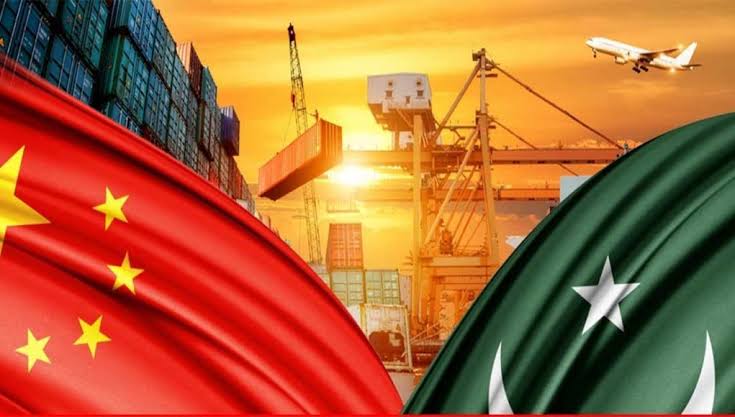The $62 billion CPEC project, which was started in 2013, is a massive infrastructure project that includes roads, railroads, pipelines, and energy facilities. The project proposes to link the Pakistani port of Gwadar on the Arabian Sea, which is bordered by Iran and the Persian Gulf, with the western Chinese city of Kashgar.
Beijing now has a quicker and more effective commerce route to the Middle East and Africa thanks to CPEC. Pakistan might become a regional economic centre as a result of the project’s increased connectivity, infrastructural improvement, and foreign investment.
On July 31, 2023, a special ceremony was conducted in Islamabad to commemorate the historic occassion of the first decade of the China Pakistan Economic Corridor (CPEC). The presence of senior officials from Pakistan and China at the occasion emphasized the importance of this turning point in bilateral relations.
Prime Minister Shehbaz Sharif of Pakistan and Mr. He Lifeng, Vice Premier of the Chinese State Council, President Xi Jinping’s Special Representative, were two of the honorable attendees. Senior ministers from both countries, prominent officials, and business leaders from top Chinese firms doing business in Pakistan were also present at the occasion.
With the construction of 510 kilometers of motorways and 932 kilometers of road networks, as well as the addition of 8,000 MW of power to the national grid, CPEC has provided Pakistan with many tangible advantages. Over 200,000 jobs have been created. Additionally, CPEC made it possible to install an 820-kilometer optical fiber cable, dramatically enhancing connectivity in the area.
The two nations’ collaboration in sectors like rural development, agricultural development, industrialization, green development, and research and technology will continue to grow during Phase-II of CPEC.
On January 4, 1950, Pakistan was one of the first nations to recognize the People’s Republic of China, and on May 21, 1951, formal diplomatic ties were established. A formal friendship pact was forged during the 1956 visit of Pakistan’s prime minister to Beijing. After thereafter, the Sino-Pakistani Agreement’s signing of the air and border land accords in 1963 represented a turning point in the two countries’ ties between the governments and between the people. Since then, relations have developed more gradually in several sectors.
China has continuously backed Pakistan’s position on Kashmir, whereas Pakistan has consistently supported China’s position on the One China Policy, Xinxiang, Tibet, and Taiwan. The two neighboring countries’ bilateral relationship is marked by mutual trust, respect, and warmth. Both nations value their relationships as “all-weather friends” and have close diplomatic, financial, and military ties. Despite its modest origins, economic cooperation has developed over time, particularly since the 1970s.
The flagship China-Pakistan Economic Corridor (CPEC) is a component of the China’s ambitious Belt and Road Initiative (BRI), which intends to increase connectivity and trade between China and other regions of the world. In China’s Belt and Road Initiative (BRI), which intends to enhance connectivity and commercial networks connecting Asia, Europe, and Africa, Pakistan is a significant partner as well. Through Pakistan’s ports, the CPEC project of the BRI acts as a crucial commercial link connecting China to the rest of the world’s markets. The Malacca Strait, through which a large portion of China’s trade passes, is prone to possible chokepoints and security difficulties. China is significantly reliant on marine trade; consequently, through CPEC, it can now access the Middle East and the Indian Ocean by the shortest distance, reducing its only reliance on the Malacca Strait.
Both the governments of Pakistan and China have also created a space where Projects in CPEC can be added, completed, or changed over time, so in these areas a holistic way forward approach can be adopted by coordinating all stakeholders. To successfully advance by 2030, it is essential for Pakistan to preserve the transparency, improving the security measures, the expansion of local force capability, industrial cooperation, improving in ease of doing business index, measures for technology transfer, institutional strength of our govt departments, trade and investment promotion in different sectors with joint venture projects, and to conduct regular ongoing assessment of the CPEC projects’ progress and adaptability on every three month bases.







